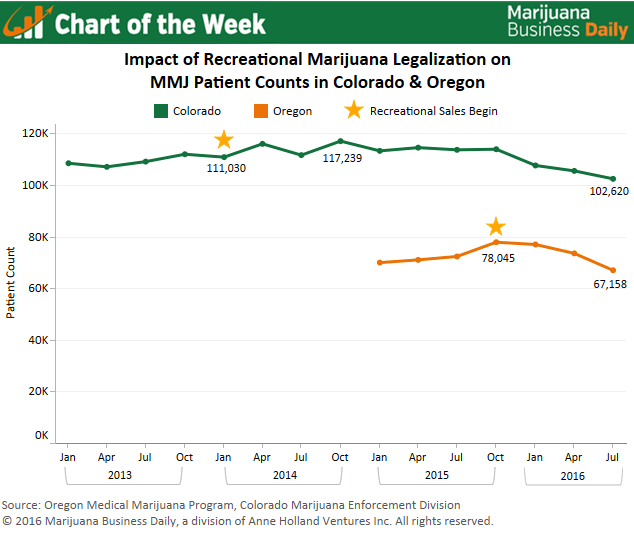R
Robrites
Oregon fair generates buzz with 1st legal pot display in US
Oregon fair generates buzz with 1st legal pot display in US
SALEM, Ore. (AP) — Living marijuana plants went on display Friday at the Oregon State Fair, with organizers saying it's the first state fair in the nation to allow cannabis for public viewing.
The state voted to legalize recreational marijuana in late 2014. Here are a few things to know about legal pot in Oregon and the display at the fair:
The Oregon State Fair allowed a display about marijuana without any living plants last year and it generated no complaints. So this year, the organization took the next step and agreed to let marijuana growers display live plants.
The Oregon Cannabis Business Council, which is sponsoring the display, says it's the first time living pot plants have been open for public viewing at any state fair nationwide.
The council is renting space in an exhibit hall for its tent and selected nine plants for the display at an industry event two weeks ago.
___
WILL FAIRGOERS GET HIGH?
No. While the tent holding the display smells strongly of weed, fair authorities are only allowing immature plants — that is, pot plants without flowers.
Marijuana leaves are much less potent than the flowers, or buds, and it's not yet legal to transport flowering plants within the state anyway.
Donald Morse, director of the Oregon Cannabis Business Council, said his group hopes to get permission to display flowering pot plants next year, but the details aren't finalized.
___
CAN ANYONE SEE THE PLANTS?
No. The exhibit is in a translucent tent and both the entrance and exit are monitored. Anyone entering must present identification proving they are 21 or over.
___
AREN'T STATE FAIRS FOR GIANT PUMPKINS, PIGS AND APPLE PIE?
The way people think about marijuana in Oregon is changing, and recreational grow sites are recognized under state law as farm crops.
The Oregon Liquor Control Commission is in the process of licensing recreational marijuana in much the same way it already controls the sale and use of alcohol.
Fair spokesman Dan Cox says the event must adapt to changing cultural and societal values and allowing the display is one part of that shift.
___
A CASH CROP
Oregonians voted to legalize marijuana in 2014 and the state allowed the sale of marijuana "edibles," such as pot-infused candies and confections, earlier this year.
This week, the state said it had processed $25.5 million in taxes on recreational pot since January 2016.
Anticipated state revenue through June 2017 was recently quadrupled by Oregon's Legislative Revenue Office, from $8.4 million to $35 million.
___
BUT IT'S ILLEGAL, RIGHT?
Recreational marijuana is still illegal in 46 states and is banned by the federal government.
Oregon fair generates buzz with 1st legal pot display in US
SALEM, Ore. (AP) — Living marijuana plants went on display Friday at the Oregon State Fair, with organizers saying it's the first state fair in the nation to allow cannabis for public viewing.
The state voted to legalize recreational marijuana in late 2014. Here are a few things to know about legal pot in Oregon and the display at the fair:
The Oregon State Fair allowed a display about marijuana without any living plants last year and it generated no complaints. So this year, the organization took the next step and agreed to let marijuana growers display live plants.
The Oregon Cannabis Business Council, which is sponsoring the display, says it's the first time living pot plants have been open for public viewing at any state fair nationwide.
The council is renting space in an exhibit hall for its tent and selected nine plants for the display at an industry event two weeks ago.
___
WILL FAIRGOERS GET HIGH?
No. While the tent holding the display smells strongly of weed, fair authorities are only allowing immature plants — that is, pot plants without flowers.
Marijuana leaves are much less potent than the flowers, or buds, and it's not yet legal to transport flowering plants within the state anyway.
Donald Morse, director of the Oregon Cannabis Business Council, said his group hopes to get permission to display flowering pot plants next year, but the details aren't finalized.
___
CAN ANYONE SEE THE PLANTS?
No. The exhibit is in a translucent tent and both the entrance and exit are monitored. Anyone entering must present identification proving they are 21 or over.
___
AREN'T STATE FAIRS FOR GIANT PUMPKINS, PIGS AND APPLE PIE?
The way people think about marijuana in Oregon is changing, and recreational grow sites are recognized under state law as farm crops.
The Oregon Liquor Control Commission is in the process of licensing recreational marijuana in much the same way it already controls the sale and use of alcohol.
Fair spokesman Dan Cox says the event must adapt to changing cultural and societal values and allowing the display is one part of that shift.
___
A CASH CROP
Oregonians voted to legalize marijuana in 2014 and the state allowed the sale of marijuana "edibles," such as pot-infused candies and confections, earlier this year.
This week, the state said it had processed $25.5 million in taxes on recreational pot since January 2016.
Anticipated state revenue through June 2017 was recently quadrupled by Oregon's Legislative Revenue Office, from $8.4 million to $35 million.
___
BUT IT'S ILLEGAL, RIGHT?
Recreational marijuana is still illegal in 46 states and is banned by the federal government.




